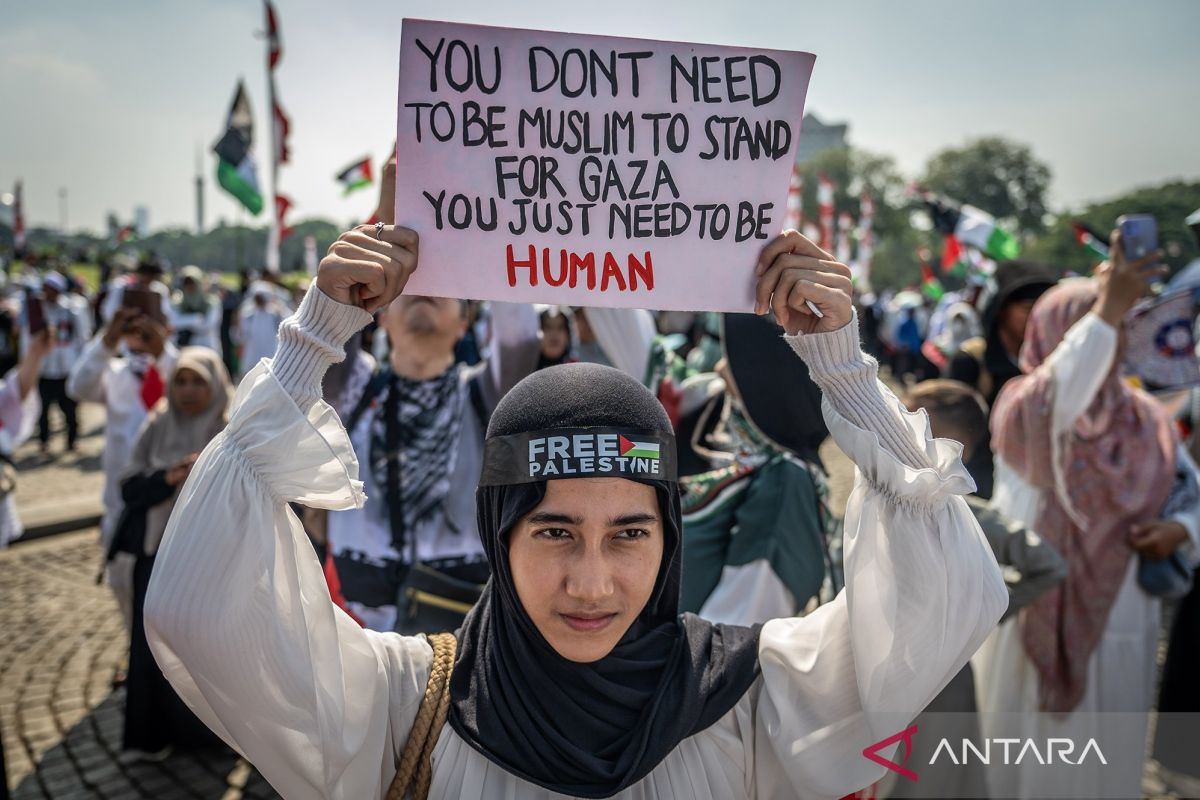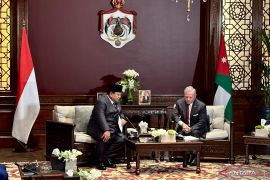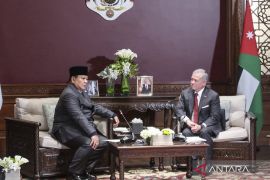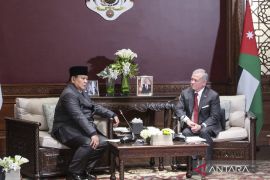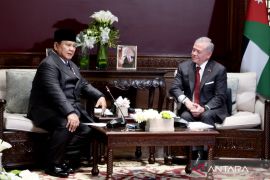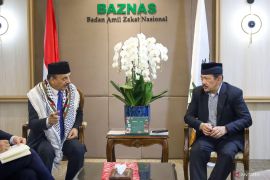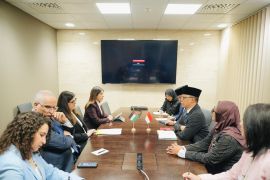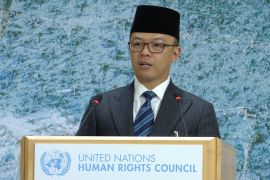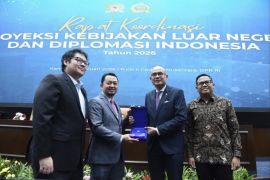On September 12, 2025, the United Nations (UN) General Assembly adopted the New York Declaration, which emphasized a two-state solution between Israel and Palestine.
The document, entitled "The New York Declaration on the Peaceful Settlement of the Palestinian Question and the Implementation of the Two-State Solution," is a draft document resulting from an international conference at the United Nations hosted by Saudi Arabia and France in July 2025.
The New York Declaration, adopted with the support of 142 of the 193 UN member states, 10 against, and 12 abstained, emphasized the importance of a peaceful settlement that respects Palestinian rights, while rejecting violence from any party, including the Hamas group.
The declaration also underscored the need for a Palestinian government free from Hamas influence, as well as international support to build effective governance capacity.
It also proposed the deployment of a temporary international stabilization mission in Gaza to ensure security and support reconstruction.
Although the resolution is non-binding, its passage reflects a strong global consensus and encourages other countries to recognize Palestine as an independent state.
The implementation of the New York Declaration and the recognition of the state of Palestine will likely find momentum for more concrete discussion in a series of UN events in New York taking place from September 9-30, 2025, including the UN General Assembly High-Level Week from September 22-27, 2025.
A number of heads of state and heads of government from various countries are confirmed to attend, including the President of Indonesia, the President of France, the Prime Minister of the United Kingdom, as well as delegations from countries that have expressed their intention to recognize Palestine, such as Ireland, Spain, Sweden, Norway, Slovenia, Malta, and Portugal.
According to official UN sources, the presence of the leaders was an important moment to discuss the implementation of the New York Declaration, the recognition of the state of Palestine, and concrete steps towards a ceasefire and reconstruction of Gaza.
However, the struggle for Palestinian sovereignty is not easy. Since October 2023, the United States (US) has vetoed six UN Security Council resolutions calling for a ceasefire in Gaza.
The last veto occurred on September 18, 2025, when the US blocked a resolution supported by 14 of the 15 members of the UN Security Council, which called for an unconditional, permanent ceasefire and the release of hostages.
The US argued that the resolution did not sufficiently condemn Hamas and did not affirm Israel's right to self-defense.
Netanyahu Controversy
Amid global pressure, the position of Israeli leader Benjamin Netanyahu has become increasingly controversial. His decisions have increasingly moved him further away from implementing the two-state solution.
The concept of Greater Israel that he promoted and under the pretext of defending against terrorist attacks, has resulted in the destruction of Palestinian infrastructure, the decline of the economy, the collapse of the health system, and the continued loss of civilians to war.
Months of Israeli blockade have devastated the Gaza Strip, putting more than a million residents at risk of starvation and Gaza's children into a lost generation.
WHO and UNRWA reports state that hospitals and medical centers are unable to operate, while the nutritional crisis among children is increasing drastically.
More than 65,000 Palestinians have been killed and 161,000 others injured in Gaza and the West Bank as a result of massive attacks and continuous bombing by the Israeli army.
On the other hand, Netanyahu (75) continues to receive international pressure due to the war in Gaza as well as domestic criticism.
A wave of protests from Israelis who accuse his government of failing to protect its citizens and prolonging the Gaza war, coupled with a looming corruption case, has put the ruling Likud party leader under increasing political pressure.
Opinions against Netanyahu are also intensifying. Some Israelis view him as a decisive leader in the face of external threats.
Meanwhile, other groups believe that his military and political policies have worsened the humanitarian situation, increased social pressure, and created the risk of diplomatic isolation.
Protests, criticism, and lawsuits have added to the complexity of domestic politics, prompting Netanyahu to take aggressive decisions toward the surrounding region.
Netanyahu's move to expand the conflict to neighboring countries such as Syria, Lebanon, Iran, Yemen, and Qatar is seen as a combination of personal pressure and political strategy to divert domestic public attention from internal failures.
From a political psychology perspective, a tired and stressed leader tends to make emotional decisions.
Foreign attacks are not only a military strategy, but also a form of political communication to emphasize the image of a “tough” leader facing external enemies.
However, the consequences are enormous, especially for Palestinian civilians, as well as wider instability in the region.
On the other hand, US support is a key factor and a “comfortable and free” haven for Netanyahu.
The US considers Israel a strategic ally in the Middle East. Israel safeguards US interests in this vital region, which serves as an international energy route and a focal point for global competition.
Netanyahu uses US support as a shield and a tool of domestic legitimacy.
Amid domestic protests in Israel against judicial reforms and harsh policies towards the Palestinians, he presented himself as a leader who had succeeded in maintaining strategic relations with the US.
In this way, Netanyahu diverts the attention of the Israeli people from the internal crisis to national security issues.
Netanyahu's actions and US support simultaneously illustrate the political paradox in the Middle East: a leader with fragile domestic support but having the freedom to wage war thanks to the support of the US superpower.
In the meantime, the Palestinian people continue to be victims of a combination of political ambition and geopolitical calculations.
Israel's powerful lobby in the US
Powerful pro-Israel lobbies, including the American Israel Public Affairs Committee (AIPAC), influence Washington's foreign policy, resulting in support for Israel coming from both Democrats and Republicans.
The US ideological narrative positions Israel as a bastion of democracy amidst a Middle East perceived as authoritarian. This reinforces the moral justification for providing political and military protection.
As a result, despite criticism from the White House, Israel continues to receive arms supplies, diplomatic protection at the UN, and financial support, allowing Israel to continue its military operations in Gaza and even expand its attacks to a number of neighboring countries.
In addition, bipartisan support in the US also makes any attempts to pressure Israel almost always unsuccessful. Congress frequently approves billion-dollar military aid packages without significant resistance.
This creates a cycle in which Israel feels safe to ignore international pressure, knowing that the US will continue to provide protection in multilateral forums like the UN Security Council.
In the meantime, the international community is increasingly vocal in its criticism of Israeli policies.
The European Union is divided between countries that want to pressure Israel with an arms embargo and economic sanctions, and others that remain cautious due to trade and security concerns.
However, public pressure in many Western countries, including large protests in London, Paris, Berlin, Amsterdam, Madrid, and even Washington itself, is beginning to shape a new current of public opinion that is more sympathetic to Palestine.
Global South countries, including Indonesia, Malaysia, Pakistan, Russia, China, India, South Africa, and Brazil, as well as a number of other countries, are stepping up diplomacy to pressure Israel.
Support from Arab countries has been increasingly consistent, particularly through the Arab League, Gulf Cooperation Council, and Organization of Islamic Cooperation (OIC) forums.
Some European countries have even considered official recognition of a Palestinian state as a way out of the prolonged political deadlock.
The future of Palestine
While challenges remain significant, international recognition of Palestine is now growing stronger. Broad support from Asia, Africa, Latin America, Australia, and Europe has made the Palestinian issue not just a Middle Eastern issue, but a global one.
If this trend of recognition continues, Palestine has a strong chance of gaining full UN membership.
This would strengthen its diplomatic position in negotiations with Israel and open it to greater access to international economic and development assistance.
However, the key remains a change in the US stance. As long as Washington continues to provide political and military protection to Israel, the path to a two-state solution will be winding and fraught with drama.
Pressure from US public opinion, the upcoming election, and Israel's own domestic political dynamics are expected to be determining factors in the future direction.
History shows that no power can endure oppression forever, as was the case with the collapse of apartheid in South Africa. The Palestinian people's struggle for independence will eventually find its way.
The world is now increasingly aware that an independent Palestine is not just an aspiration, but an inevitable historical necessity.
Related news: UN Assembly pushes for global recognition of Palestine: Indonesia
Related news: Indonesia to announce new aid for Palestine at UN
Related news: Prabowo's presence at UNGA highlights Indonesia's leadership: ministry
Translator: Primayanti, Katriana
Editor: Azis Kurmala
Copyright © ANTARA 2025
